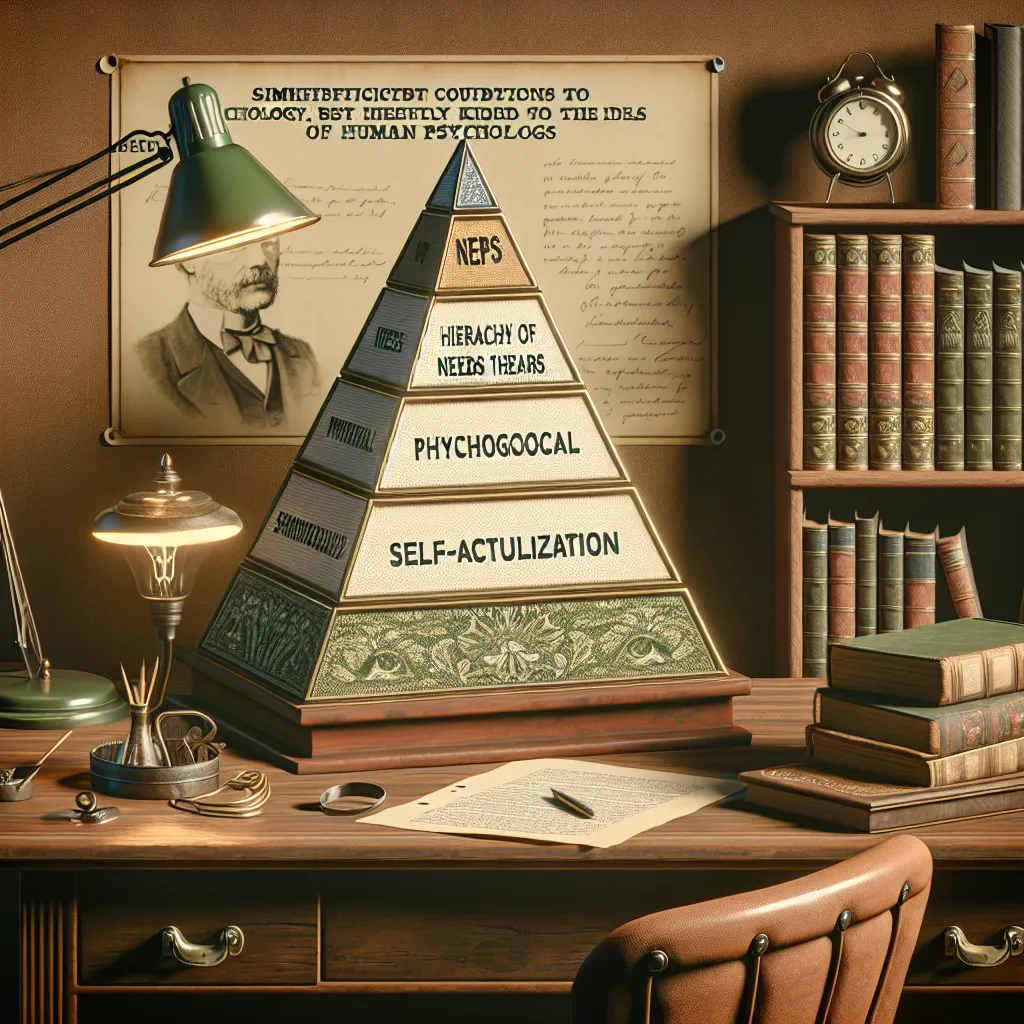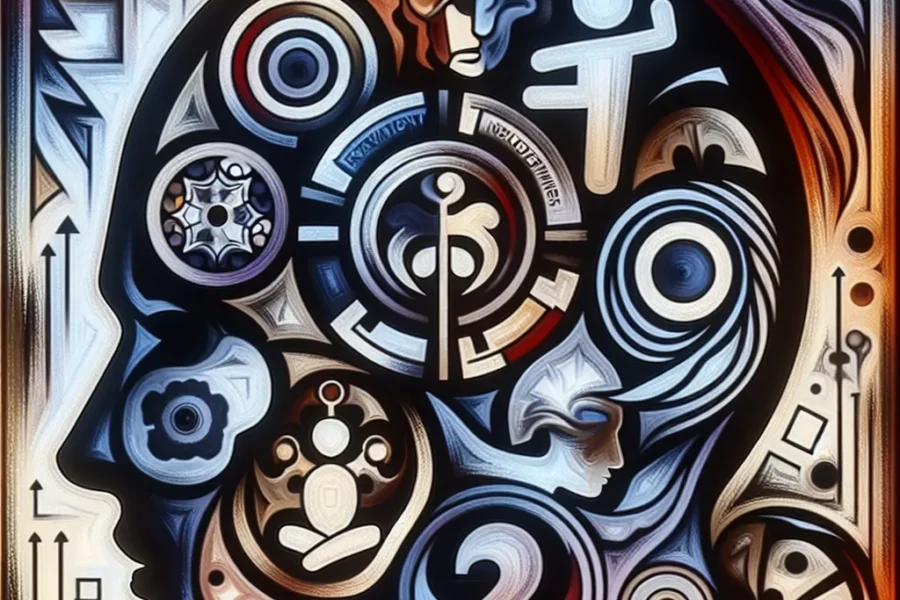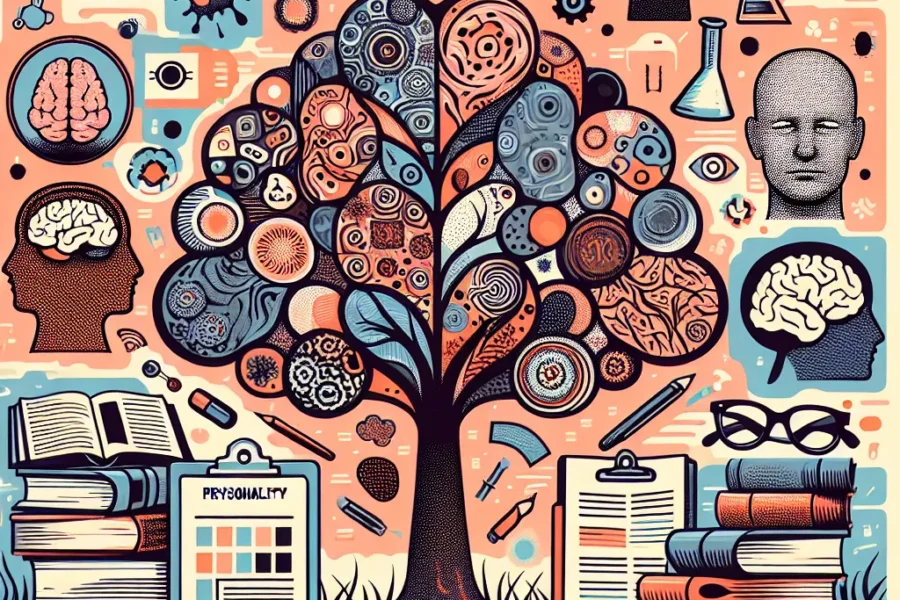Abraham Maslow, a name synonymous with humanistic psychology, carved an indelible mark on the field with his pioneering work that transcends decades. Born on April 1, 1908, in Brooklyn, New York, Maslow’s intellectual legacy is not confined to a single theory or book – his ideas have become a foundational part of psychological study and practice. The cornerstone of Maslow’s enduring impact is his Hierarchy of Needs, a model that has not only shaped psychological thought but extended its reach into areas like business, education, and personal development.
At the heart of Maslow’s Hierarchy of Needs is the concept that human motivation is driven by a series of tiered needs, ranging from the most basic physiological necessities to the pursuit of self-actualization – a term he coined to describe the process of realizing one’s fullest potential. This five-stage model (which later evolved into seven stages) forms a pyramid with the following levels: physiological, safety, love/belonging, esteem, and self-actualization. Later in his life, Maslow expanded this model to include cognitive and aesthetic needs before self-actualization, and lastly, transcendence above self-actualization.
Maslow’s seminal work, “Motivation and Personality,” published in 1954, established a new framework for understanding human behavior. It challenged the reductionist views of behaviorism and the deterministic stance of psychoanalysis, both prevalent in mid-20th-century psychology. His humanistic approach emphasized the potential for growth and change inherent in all people, positioning Maslow as a beacon of positive psychology, long before the term came into popular usage.
The impact of Maslow’s Hierarchy of Needs is far-reaching. In education, it underscores the importance of addressing the basic needs of students to create an environment conducive to learning. The model suggests that only when a student’s physiological needs are met and they feel safe and secure, are they truly ready to engage in learning and critical thinking. The chain of needs propels educational professionals to cultivate a sense of belonging and esteem in their students, enabling them to reach the pinnacle of educational attainment – self-actualization.
The business world, too, has adopted Maslow’s principles. Managers and corporate leaders apply the Hierarchy of Needs to motivate employees, enhance productivity, and create a harmonious work environment. Understanding that employees need more than just a paycheck, modern companies strive to provide a safe workplace, foster a sense of community, recognize achievements, and encourage personal and professional growth. By doing so, they aim to not only retain talent but to spur innovation and drive success.
Moreover, Maslow’s concept of peak experiences, which he defined as moments of highest happiness and fulfillment, echoes in contemporary discussions on wellbeing and life satisfaction. His emphasis on psychological health and the exploration of the best characteristics in individuals continues to inspire positive psychologists to focus on strengths rather than ailments.
Maslow’s ideas also had a profound influence on therapy. With his humanistic approach, he encouraged a more empathetic and holistic form of counseling, where therapists aim to understand the individual’s subjective experience and work towards the development of their self-identity and values. This client-centered therapy was a significant departure from the strict, often impersonal methods employed by earlier schools of psychology.
Critics have argued that Maslow’s work lacks scientific rigor, and some have pointed out that his concept of self-actualization is vague and difficult to empirically measure. Despite these criticisms, Maslow’s theory remains a valuable heuristic tool for understanding human motivation and continues to be referenced in psychological literature, as well as in various interdisciplinary studies.
Maslow did not see his hierarchy as a rigid ladder that each person climbs in the same order. Instead, he recognized that individual differences and cultural factors could affect how people prioritize their needs. Recent research has elaborated on this idea, suggesting that the hierarchy is more flexible than originally thought and that the order of needs may shift depending on the individual’s circumstances and cultural background.
In addition to influencing psychological thinking, Maslow’s work has permeated popular culture. Phrases like “self-actualization” and “peak experiences” are now part of the common vernacular, often used in contexts ranging from self-help books to motivational speeches. His humanistic vision celebrates the individual’s quest for meaning and fulfillment, themes that resonate widely with audiences seeking personal growth and purpose.
Looking at the enduring relevance of Maslow’s work, it becomes clear that his legacy in psychology is not confined to a singular theory or discovery. Maslow’s contribution represents a shift in perspective – one that honors the complexity and richness of the human condition. His work challenges us to look beyond the mechanistic and pathological, and instead, to appreciate the whole person, with all their aspirations, creativity, and capacity for growth.
The Humanistic Movement, of which Maslow was a prominent figure, has established itself as the “third force” in psychology, alongside behaviorism and psychoanalysis. It presents a more optimistic view of human nature and has contributed to the development of other fields, like existential psychology and positive psychology, which continue to thrive today.
Abraham Maslow passed away on June 8, 1970, but his influence did not end with his death. His theories continue to inspire new generations of psychologists, educators, business leaders, and individuals around the world. By offering a vision of what humans can become, Maslow has helped to shape a psychology that recognizes the beauty in personal development and the power of self-fulfillment.
In academia, the continued interest in Maslow’s work is evident in the myriad of studies and papers that seek to explore and expand upon his ideas. From reevaluations of the Hierarchy of Needs in diverse cultural contexts to the application of his theories in modern-day leadership models, Maslow’s presence in scholarly discourse remains strong.
It is clear that the legacy of Abraham Maslow in psychology goes beyond the pages of textbooks. His life’s work serves as a guiding force for those who believe in the innate goodness and potential of humanity. Whether in the nurturing environment of a classroom, the dynamic setting of a workplace, or the intimate space of a therapy session, the spirit of Maslow’s humanistic psychology lives on, encouraging all humans to strive for the highest within themselves.



Leave a Comment